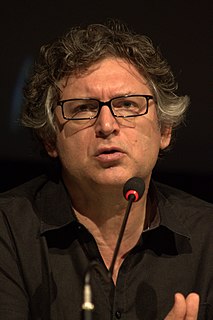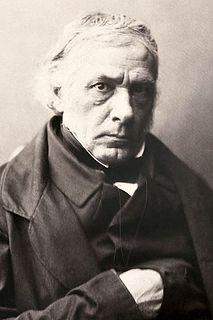A Quote by Johann Wolfgang von Goethe
Art is based on a strong sentiment of religion,--on a profound and mighty earnestness; hence it is so prone to co-operate with religion.
Related Quotes
Art is not a substitute religion: it is a religion (in the true sense of the word: 'binding back', 'binding' to the unknowable, transcending reason, transcendent being). But the church is no longer adequate as a means of affording experience of the transcendental, and of making religion real - and so art has been transformed from a means into the sole provider of religion: which means religion itself.
Art neither belongs to religion, nor to ethics; but, like these, it brings us nearer to the Infinite, one of the forms of which it manifests to us. God is the source of all beauty, as of all truth, of all religion, of all morality. The most exalted object, therefore, of art is to reveal in its own manner the sentiment of the Infinite.
Religion is not based on belief or faith: religion is based on awe, religion is based on wonder. Religion is based on the mysterious that is your surround. To feel it, to be aware of it, to see it, open your eyes and drop the dust of the ages. Clean your mirror! and see what beauty surrounds you, what tremendous grandeur goes on knocking at your doors. Why are you sitting with closed eyes? Why are you sitting with such long faces? Why can't you dance? and why can't you laugh?
The religion of art, like the religion of politics, was born from the ruins of Christianity. Art inherited from the old religion the power of consecrating things and endowing them with a sort of eternity; museums are our temples, and the objects displayed in them are beyond history. Politics--or more precisely, Revolution--co-opted the other function of religion: changing human beings and society. Art was an asceticism, a spiritual heroism; Revolution was the construction of a universal church.
The easy confidence with which I know another man's religion is folly teaches me to suspect that my own is also. I would not interfere with any one's religion, either to strengthen it or to weaken it. I am not able to believe one's religion can affect his hereafter one way or the other, no matter what that religion may be. But it may easily be a great comfort to him in this life-hence it is a valuable possession to him.
Yet Buddhism is four hundred years older than Christianity, and if it's not a universal religion I don't know what a universal religion is. There's also a strong focus on selectionism and the notion that religion plays a functional role in the evolutionary process. But religion is dysfunctional all the time, as well as functional. It's not so simple.
The court decided, based on its reading of our precedents, that the effects test of Lemon is violated whenever government action creates an identification of the state with a religion, or with religion in general, ...or when the effect of the governmental action is to endorse one religion over another, or to endorse religion in general.
What our view of the effectiveness of religion in history does at once make evident as to its nature is--first, its necessary distinction; second, its necessary supremacy. These characters though external have been so essential to its fruitfulness, as to justify the statement that without them religion is not religion. A merged religion and a negligible or subordinate religion are no religion.
Warhol and other Pop artists had brought the art religion of art for art's sake to an end. If art was only business, then rock expressed that transcendental, religious yearning for communal, nonmarket esthetic feeling that official art denied. For a time during the seventies, rock culture became the religion of the avant-garde art world.





































